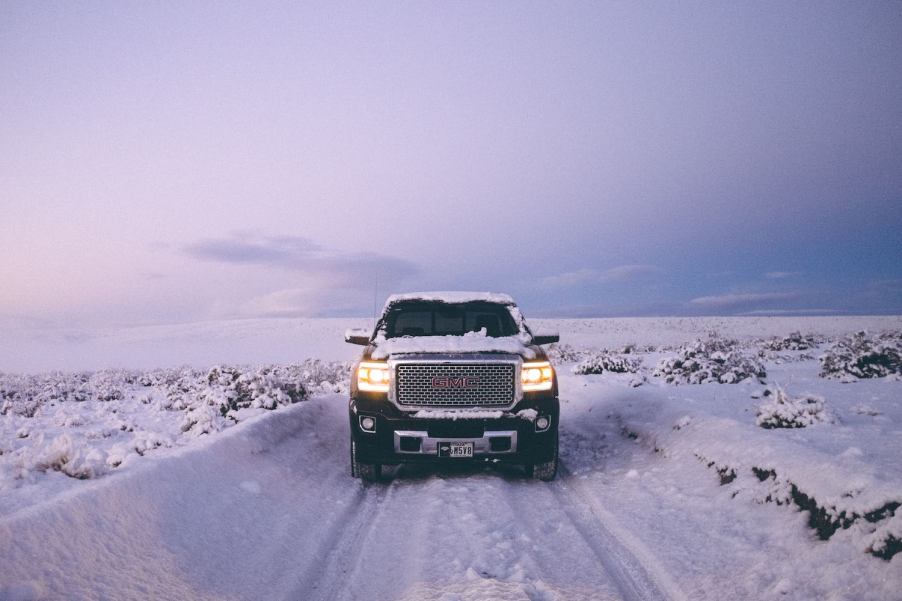
Who is to Blame for Colorado’s Proposed ‘Bloat Fee’ on Heavy Trucks and SUVs?
Colorado is considering a registration fee (up to $29.90 annually) on heavy SUVs and trucks–including EVs. It supposedly offsets “vehicle bloat” and is fully supported by the local AAA. Why? The funds are earmarked for pedestrian safety after a record 115 deaths in Colorado last year. Whether or not you think the fee is a good idea, we can all agree that it didn’t have to come to this.
Why does Colorado have so many fees?
The state of Colorado has very restrictive laws on raising taxes. But as a result, often when it needs funds, it levies a “fee” instead of a tax. Some Colorado residents are fed up with this loophole.
Mobility expert David Zipper (@DavidZipper) originally posted Colorado Public Radio’s coverage of the proposed fee. I reposted it asking, “Are weight-based new car fees a good idea?” The question proved divisive, but many folks were against such fees.
@BowTiedTurismo said, “No, its theft”
@ActualJonFromEarth commented, “No … fees are just a fancy name for extortion… government bootlickers will disagree”
@Nitro396 didn’t pull any punches: “This crap is straight out of 1984!! This kind of crap NEVER stops! People use to be about freedom in this country.” Then they added, “No! That’s stupid. Why can’t people drive what they want?? Why does the state think they can levy a sin tax because you didn’t choose the car they think is best for you??! What the f___?? Most cars are over 3500lb thanks to all the safety bullshit”
@MinisterofDoom said, “ANYTHING-based car fees are a s___ idea. Don’t punish people for buying the only option available (bloated crossovers). Remove the artificial incentives for selling bigger cars!”
@100percentjake had a more nuanced view, “My only reservation is that fees shouldn’t be the long term solution; cities should be structured to make using large vehicles for this unintended purpose (schlepping around a single occupant) so d___ inconvenient that people are compelled to use something else.” Then he added, “Vehicle choice is one of the few choices in life where personal preference can have a large effect on other people.”
@Edog223 had an interesting counter-suggestion, “I would approve of action at the automaker or dealer level rather than consumer.”
And @widirstky said, “if they actually use the money for what they say. just like the rtd tax from 15/20? years ago, we’re still waiting on the boulder/denver light rail line….”
Some commentators missed a key component of the fee: Colorado is considering the surchage because of the danger large trucks and SUVs pose to pedestrians.
Why are trucks and SUVs killing more people?
Trucks and large SUVs are getting larger, heavier, and quicker. A design trend toward taller suspension and higher hoods has increased the size of their blind spots. The result is a record number of pedestrian and bicyclist deaths.

Consumer Reports found that the height of the hood of the average passenger truck is up 11 inches since 2000. The resulting blind spots are so large that you could park a small car in front of most trucks, and the driver couldn’t see it. Pickup trucks also have larger “A-pillars” between the door and windshield, making them four times more likely to strike pedestrians or bicyclists while turning than cars are.
When a new truck strikes a pedestrian or bicycle, its tall hood increases the chances of a head-to-hood impact and a person falling beneath the moving vehicle, especially a smaller one.
The danger of big trucks isn’t unique to Colorado. But Colorado is unique in that 86.9% of its new vehicle registrations are “light trucks,” (a class that includes pickups and full-frame SUVs), but it is a state with some major urban centers. This may be why Colorado’s pedestrian deaths reached a record 115 last year.
The proposed annual fee would only affect owners of vehicles registered in 12 urban counties. It would range from $4.50 to $29.90 a year, based on vehicle weight. And it would include EVs.
Where would this money go? It would fund a “new enterprise” within the Colorado DOT. This group would then focus on separated bike lanes, road narrowing, and automated speed cameras.
There are alternatives to Colorado’s weight-based fee

We know more pedestrians and bicyclists are struck and killed every year. There may be many reasons, including more pedestrians and drivers distracted by cellphones or even more urban dwellers choosing to walk. But the increasing blind spots of trucks and SUVs are not helping.
There is a legal precedent that automakers must design somewhat pedestrian-friendly vehicles. This is why pop-up headlights (and the angular design of the cybertruck prototype) are illegal in many places. We have the technology to place a forward-facing “trail” camera on trucks or SUVs with hoods above a given height. These could automatically turn on in first gear, the same way your backup camera comes on in reverse.
Another helpful technology is automatic emergency braking, when it is sensitive enough to detect pedestrians. This technology is available in every high-trim truck and SUV, but some automakers still charge extra for it on entry-level trucks. This is despite a pledge to make it standard. This technology could also be standard on every vehicle with blind spots over a certain size and optional in cars with better visibility.
What do you think? Is Colorado on the right track, or is its fee excessive? Let us know in the comments below.
Next, read about the pickup truck charging extra for automatic pedestrian braking, or see the latest pickup truck blind spots for yourself in the video below:







